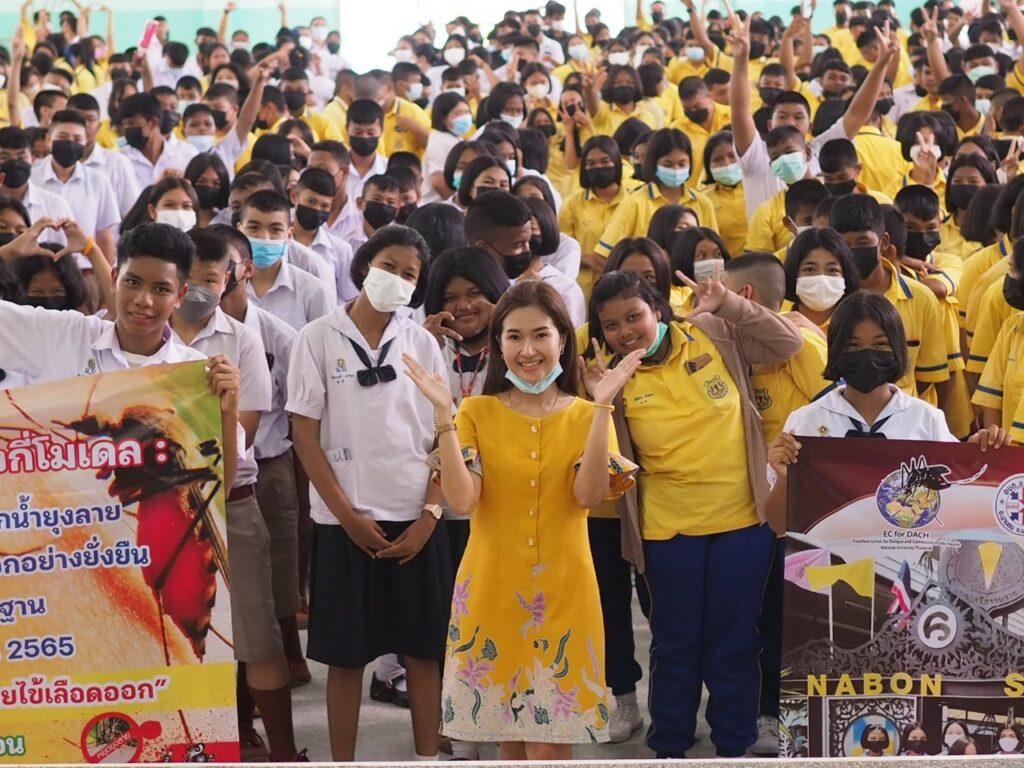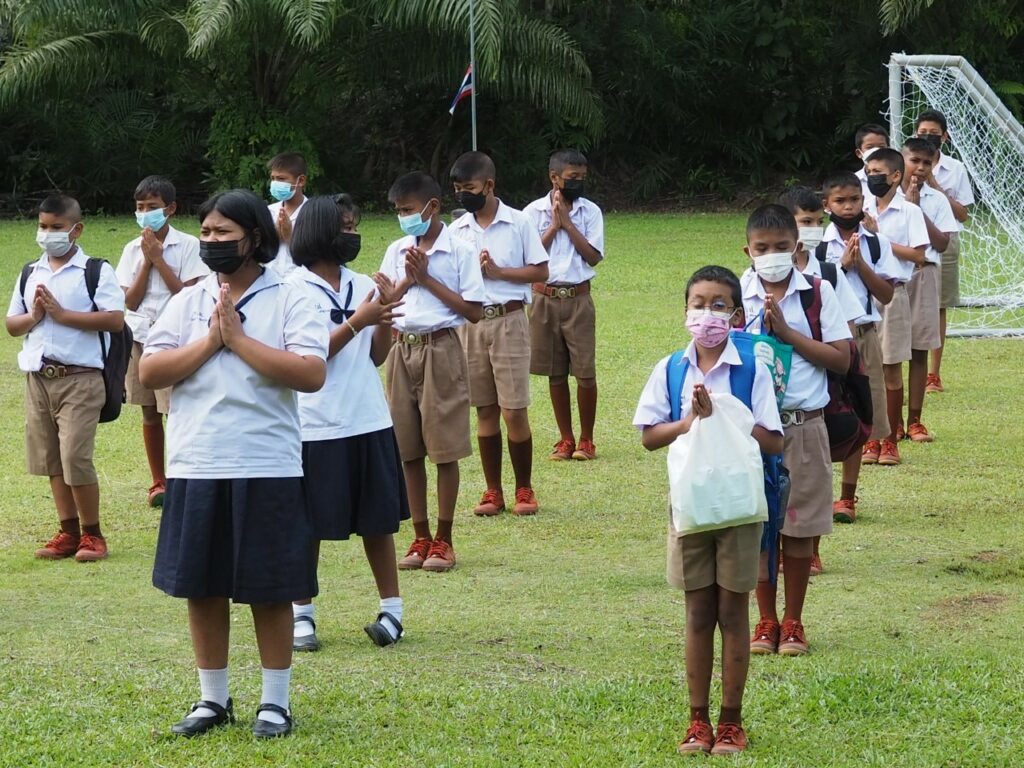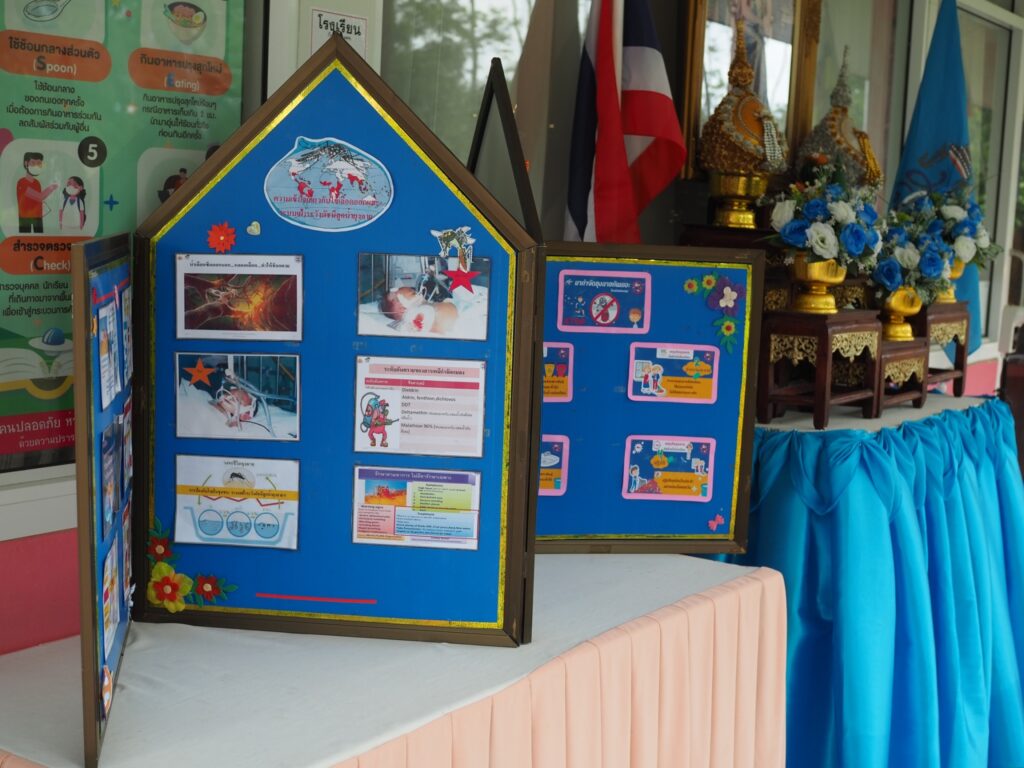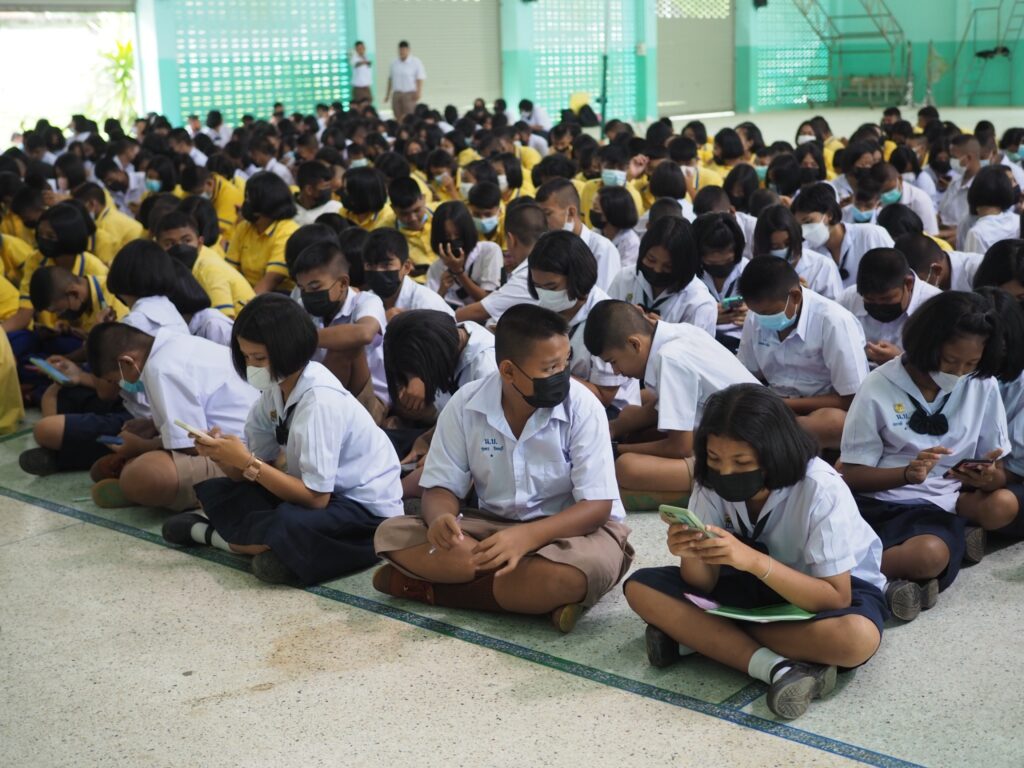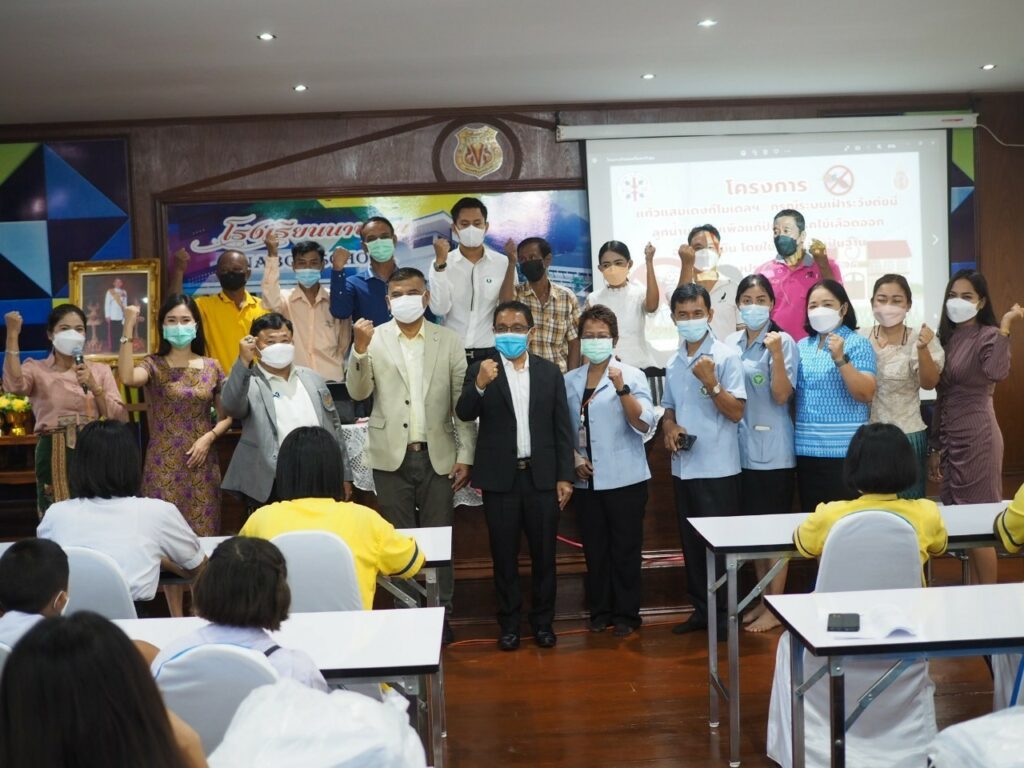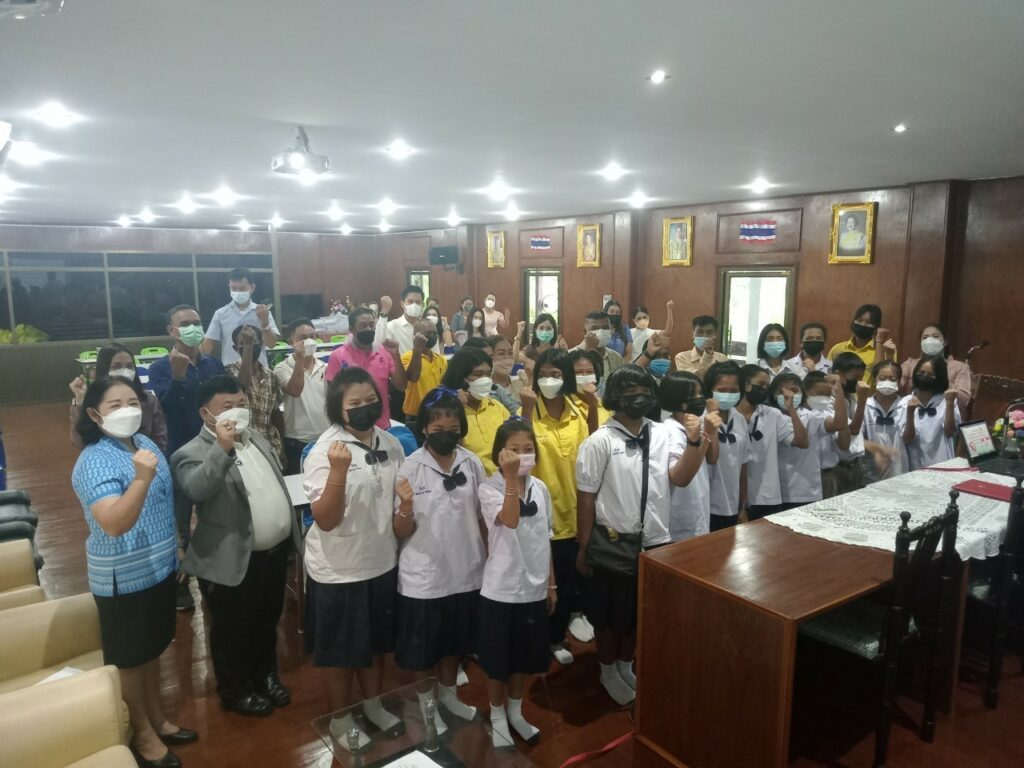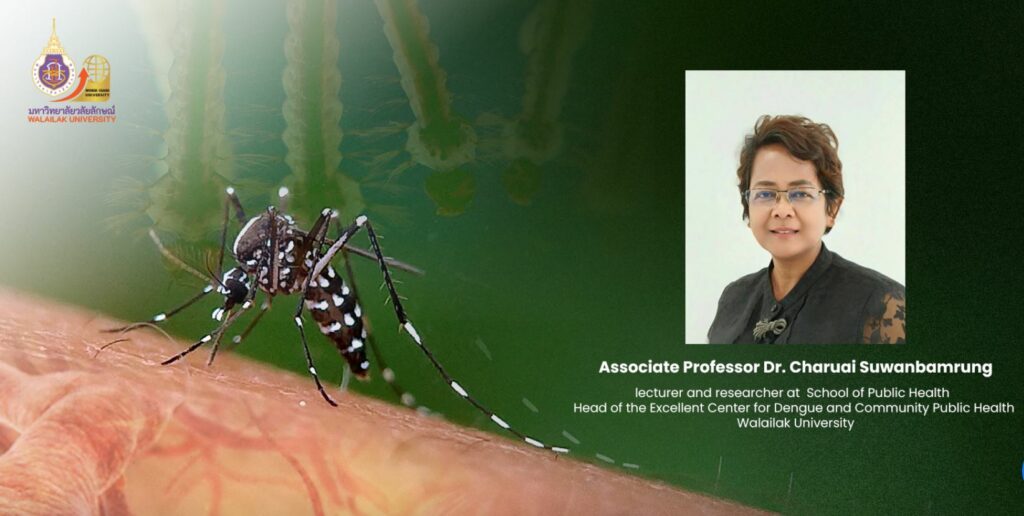
Dengue is a viral infection caused by Dengue virus, transmitted to people through the bites of female mosquitoes specifically Aedes species. This mosquito-borne disease is widespread across the globe, particularly in tropical countries including Thailand. Dengue was first documented in Thailand in 1949, with the first disease outbreak recorded in 1958. Four serotypes of Dengue viruses: DENV-1, DENV-2, DENV-3, and DENV-4 take turns causing these outbreaks.
According to the Department of Disease Control, Ministry of Public Health, the biggest outbreak in Thailand was in 1987, resulting in a substantial toll with more than 170,000 people infected and 1,000 fatalities. World Health Organization (WHO) reports that each year approximately 100 to 400 million people around the world are infected with Dengue. There’s no specific treatment and patients are treated according to their symptoms. Early detection and access to quality healthcare are essential to reduce severe symptoms, death rate, and associated losses.
Associate Professor Dr. Charuai Suwanbamrung, a lecturer and researcher at the School of Public Health and Head of the Excellent Center for Dengue and Community Public Health at Walailak University, is deeply passionate about addressing this global issue. She has been researching Dengue for more than three decades, shared her knowledge with communities, and provided training to Village Health Volunteers in seven southern provinces of Thailand namely Krabi, Chumphon, Phuket, Surat Thani, Ranong, Phang Nga, Ranong, and Nakhon Si Thammarat.
Her journey in the fight against Dengue started in 1988 at Songkla Hospital in the southern province of Songkla. The experience she gained while working as a nurse in the children’s ward led her to realize she could make a more significant contribution to Dengue disease management. “It began thirty years ago while I was working as a nurse in the children’s ward at Songkla Hospital on Ko Yo Island,” she said. “I witnessed numerous cases of Dengue-related deaths, especially among children who were defenseless against mosquito bites. I was affected by the losses and felt that there was room for improvement in the healthcare system to better manage the disease and provide enhanced services to patients.”
With passion for research and 20 years of experience as an Advanced Practice Nurse (APN), Dr. Charuai changed her career path in 2003 and became a lecturer and researcher at Walailak University. She authored eight books on Dengue, sharing her knowledge through writing in the hope that the public would gain a better understanding of how to prevent Dengue infections. Some of her notable works include SURAT Model: Model of Larval Indices Surveillance System and Dengue Risk Prediction for Dengue Solution from Household to Province, Kaewsan Dengue Model: Addressing Dengue in Pracharat Subdistrict, and Sustainable Solutions for Dengue: Basic Knowledge and Larval Indices Monitoring.
Dr. Charuai played a crucial role in creating Dengue Clinical Practice Guideline (DCPG) from Household to Hospital, which is a comprehensive resource for the public and healthcare professionals to reference. She said that developing the DCPG is context-specific. “It’s essential to understand the unique circumstances. The DCPG may vary depending on the specific location and timeframe.”
Dr. Charuai has developed seven models for setting larval indices surveillance systems and predicting disease outbreaks at the village level across seven districts, 373 villages, and 68 sub-district health promotion hospitals. She shared knowledge with 57 monitoring centers and enhanced the capabilities of 6,701 Village Health Volunteers (VHV) and 2,685 health leaders in Dengue prevention and larval indices management.
The results are empirically evidenced by a reduction in the infection rate in Kanchanadit district, decreasing from 333 cases in 2018 to 267 cases in 2019, a decrease of nearly 20 percent with a zero percent fatality rate. Economic losses from Dengue treatment were reduced by 701,409 Baht. The public is more aware of disease prevention and has better access to knowledge. Larval indices have decreased, and the Department of Disease Control has disseminated this knowledge to the northern province of Tak and the eastern province of Trat.
Due to her dedicated efforts in addressing Dengue in various regions of the country, in 2023, Associate Professor Dr. Charuai Suwanbamrung was honored with the Excellence in Academic Service Award for Social Engagement and Community Service and was conferred the Pin of Honor by Her Royal Highness Princess Chulabhorn Krom Phra Srisavangavadhana.
Dr. Charuai emphasized that to tackle Dengue, we must simplify our approach, work as a team, make a continuous effort, and encourage public participation. She explained that the symptoms of Dengue, which has three stages – fever, shock, and recovery can be likened to traffic lights – yellow, red, and green. The fever stage signifies the need for treatment to prevent progression to the shock stage. Patients should not remain in the shock stage for more than 48 hours, as shock with internal organ bleeding can lead to fatalities.
Dr. Charuai highlighted that mosquitoes tend to live within 100 meters of their habitats. If a patient infected with Dengue is reported in a village, the community needs to take prompt action. Mosquito repellent should be applied to prevent mosquito bites. Water containers must be covered, and containers with larvae must be emptied. Fogging can be further carried out by authorities or healthcare professionals. Most importantly, people with a fever lasting more than 48 hours and/or experiencing exhaustion, nausea, and vomiting must be taken to the hospital.
